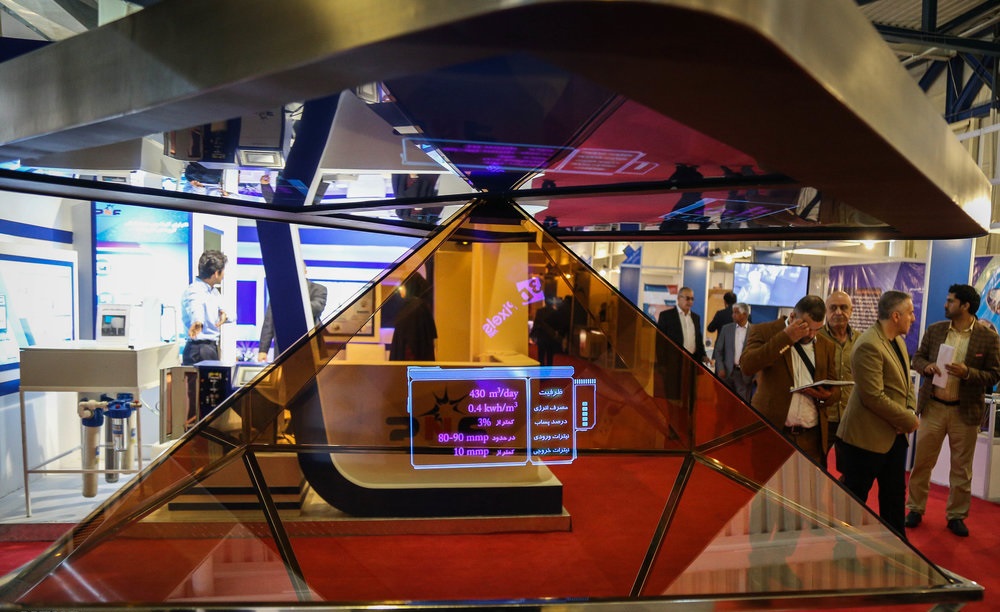Iran is planning to build a “nano-city” in Oman.
“It is expected that an industrial city will be constructed in Oman that will be a platform to produce and export nano-products to Arab and African markets,” the head of the Iran Nanotechnology Initiative Council (INIC) Saeed Sarkar said, according to Iranian Student’s News Agency (IRNA). Sarkar made the remarks at the International Nanotechnology Exhibition in Tehran held last week from October 13-16.
“We are hosting over 40 countries at the exhibition, including Russia, Bolivia, Malaysia, Indonesia, Oman, South Korea and Iraq, who are planning to cooperate with Iran on nano-technology,” Sarkar said, adding that Iran took in $65 million in revenue last year thanks to the sale of nano-products. Iran is hoping to bring that number to at least $110 million by late March 2019, when the Iranian calendar year ends.
Building an industrial park in Oman is no easy business. NanoCity, as the industrial park will be called, is located near the capital city of Muscat and will take about 12 years to complete. Groundbreaking on the first phase will take place sometime in April next year and is scheduled to be completed by April of 2022. The second and third phases will not be completed until December 2026 and 2031, respectively.
NanoCity will have four industrial zones, a hotel, school, shopping center, health center and business offices, all which will occupy one million square meters. About 40 Iranian knowledge-based companies will also be established within the complex. Omani companies have negotiated with 40 of their Iranian counterparts to establish a presence. Already 10 South Korean companies with representatives at the International Nanotechnology Exhibition in Tehran have signed on to the venture.
“In this regard, some Memoranda of Understanding were inked between Iran and South Korea for broadening bilateral cooperation in nanotechnology,” Sarkar said, according to Mehr news.
Despite economic pressures due to sanctions imposed by Western countries, particularly the United States, nanotechnology in Iran has been on the rise. Iran has already boasted of 460 nanotechnology products and over 180 knowledge-based companies nationwide, and the country ranks high in terms of the number of publications appearing in scientific journals each year. Per the terms of the National Nanotechnology Development Program 2017–2025, nanotechnology advancements in Iran will improve people’s quality of life through accelerating development and wealth creation.
Nano-fiber technology has grabbed the public’s attention in Iran, thanks to advancements in nano plasters, water refinery filters, cloth production and energy production.
Methods to refine water – a limited resource in the Caspian country, which frequently faces droughts – by using membranes have become widespread. Given the country’s growing need for industrial and home water purification systems, a new challenge has emerged to produce nano-filters for water purification systems. The Iranian knowledge-based company Nano Azma has designed a nano-filtration system with a desalination feature.
According to Iran’s Vice President for Science and Technology Sorena Sattari, the value of products sold by knowledge-based companies across Iran amounted to over $14 billion last year. The country is home to over 3,600 knowledge-based companies, and the number is ever increasing.







 Azerbaijan and Armenia started the process of demarcation of their border on Tuesday, with the installation of the first border markers based on ge...
Azerbaijan and Armenia started the process of demarcation of their border on Tuesday, with the installation of the first border markers based on ge...
 President Aliyev emphasized the critical role of the North-South Transport Corridor in fostering transport cooperation between Azerbaijan and Russi...
President Aliyev emphasized the critical role of the North-South Transport Corridor in fostering transport cooperation between Azerbaijan and Russi...
 Armenian sappers commenced on Monday mine-clearance operations in the territories adjacent to the Saint Mary Church in village of Voskepar (Armenia...
Armenian sappers commenced on Monday mine-clearance operations in the territories adjacent to the Saint Mary Church in village of Voskepar (Armenia...
 Russian Foreign Minister Sergei Lavrov has reasserted that Moscow has no intentions to stop the fighting in Ukraine, even if peace talks commence.
Russian Foreign Minister Sergei Lavrov has reasserted that Moscow has no intentions to stop the fighting in Ukraine, even if peace talks commence.



